A 22-year old Jim Park remembers the precise moment he learned how fast was too fast when cresting a hill.
“I’d been driving tankers around Mississauga for months, and figured I knew what I was doing,” he says with a laugh.
That was before he found himself careening down the Ancaster Hill on Highway 403 hauling a half-full tanker into Hamilton. “I came over the top too fast, and by the time the surge hit the front wall of the tanker, there wasn’t a damn thing I could do.”
A vision of the wave sloshing around the tank flashed before Park’s eyes as he gave himself up for dead and hung on for dear life.
“That was the first and last time I underestimated the importance of gearing down at the top of a hill. And you can bet your ass I taught myself everything I could about liquid-cargo physics the next day,” he says.
Park was lucky. But his story illustrates the basic advice drivers shared with me for this article: out there, it’s just you and the truck. And to succeed, excel and be safe in this business, you need to be prepared for almost anything.
The good news? Veteran drivers are happy to share their tips and stories. If younger drivers choose to listen, they can save themselves a boatload of grief. And possibly their lives.
Re-open safety space when someone cuts in front
Ron Faulkner has been driving for 47 years and now works out of Woodstock, Ont.
To this day he’s followed a simple piece of advice he got years ago: re-open your safety space when someone cuts in front of you.
“I once picked up a load of paper rolls at a mill in Virginia. And even though I’d brought straps, the shipper chose not to use them. Then they sealed the trailer, so I didn’t figure this out until later,” says Faulkner.
By later, he means after a car had cut in front of him just as they were both heading towards a surprise construction zone at the bottom of a bridge.
“I slammed on those brakes, and of course the un-strapped rolls shifted in the front of the trailer. The weight pushed me much further into my safety zone than I’d expected. If I hadn’t backed off right after that car cut in front of me, I would have flattened him.”
Every driver I spoke to talked about an increase in rude road behavior today, especially cars (and even trucks) cutting in. “It doesn’t matter,” says Faulkner. “You want to fume about someone’s bad manners? Or do you want to deliver your load and get home safe?”
As a side note, Faulkner now insists – wherever possible – on inspecting every loaded trailer. You can bet he makes sure the cargo is secure.
Trust your instincts, and always check your equipment
When Greg Decker was a young driver, he was once paired with a new hire and sent from Toronto to Vancouver with a load of mail for Canada Post. (Yes, an entire trailer filled with snail mail – this will tell you how long ago this incident took place).
“This fellow was a recovering alcoholic who hadn’t driven for years. But he was 20 years older than me, so I assumed he knew how to drive,” says Decker. “The entire trip was a nightmare – he panicked in Michigan Upper-Peninsula fog. He panicked going through Kicking Horse Pass.”
Decker trusted his gut and took the wheel more than he should have, but swears he’s alive today because he did. That particular trip taught him another lesson, too.
“We’d stopped for service in Regina, and I was lazy, assuming the truck would be fine after a full service and inspection at a dealer.” Well, they made it through the mountains and to Vancouver, likely thanks to a light load and decent trailer brakes. But the tractor brakes failed completely when they were bobtailing across town to pick up their next load.
“I damn near crashed into a slew of parked cars. Never again have I trusted anyone else’s word about brakes or anything else.”
As it happened, Decker returned to Regina and quit that job on the spot, leading to another piece of advice: If a company isn’t treating your safety seriously, leave. There are plenty of others who will.
Know what you don’t know – and advocate for yourself
Larry Hall was flabbergasted when his B.C. driving school graduated him early, in 1981. They claimed he’d finished the course in half the time.
“I’ve never been accused of being a smart man. But I was smart enough to know I wasn’t ready to drive,” he laughs.
So, Hall demanded more training, and the school grudgingly complied.
Later, when he scored his first job, Hall heard a story about a fellow student who hadn’t been as direct with the school admin. His new colleagues referred to this fellow as “McKinley Jim,” after the long-closed McKinley Driving School where Hall had trained.
Fresh out of school, “McKinley Jim” took on a load of rebar and headed east from Vancouver to Princeton. He hit the legendary Princeton Mine Hill on Highway 3 way too fast, and wound up at the bottom with his brakes on fire and his load exploded all over the highway.
Hall’s tip? Know when you don’t know enough. And don’t be afraid to push for help when you need it.
Carry the right equipment
Terry Smith has been driving truck for more than half a century, and says he’s never worked a day that didn’t start with a smile.
He learned to drive when a seasoned driver noticed his obsession with trucks and took Smith under his wing. Smith is convinced he got the best training in the world.
“Something practical the schools don’t seem to teach today is what kind of equipment you should always carry in your truck – and why,” he says.
Smith always advises young drivers to carry these items:
- Flashlight
- Water and snacks
- Winter clothing
- Rainsuit
“You’ll be soaked in two minutes in a steady downpour. And it takes longer than that to check out a strange noise or a blown-out tire.”
Smith also says being kind, friendly and polite goes a long way to making this job easier and more pleasant.
“You need to be prepared to handle any conversation that happens when you roll down your cab window. Border crossing, scale, police, shippers – all of them. I always start by smiling and saying ‘Good morning.’ Folks appreciate it much more than, say, ‘Hey, bro.’”
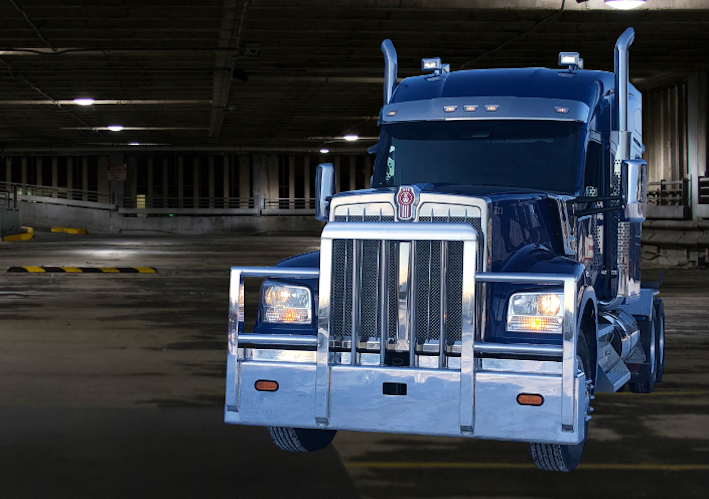
Never rely on a moose bumper
Treana Moniz drives for Bison Transport and considers herself a mentor to the company’s new drivers.
“One day a young fellow was grousing to me about why the trucks didn’t have moose bumpers. I said, ‘Why do you want a moose bumper?’”
The driver shrugged and said, “There’s moose on 17.”
Moniz eyeballed him and said, “Yeah, there’s moose on 11, too. And deer. And bears. But a moose bumper isn’t a reason to feel safer, or an excuse to drive faster.”
In fact, Moniz did once hit a moose. And her truck was equipped with a moose bumper. “That truck still took serious damage. I should have been driving slower, period.”
Moniz goes on to clarify this tip is part of her overall driving philosophy: Always expect the unexpected. “You never know when someone’s going to cut in front of you. Or a moose is going to dash onto the highway. Your job is to be prepared for anything.”
Remember your weight and size … and put your phone DOWN
Bev Levesque and Fred Bezemer have been team driving for 20-plus years, and Bezemer drove solo for decades before this.
“Some of today’s automatic trucks are so quiet and cozy, they can feel like driving small pickup trucks,” he notes. “You have to remember your weight, your size, and your speed every moment you’re moving.”
Levesque agrees. “I see drivers cruising along with their left foot up on the dashboard and their phones in one hand, as if they’re in their living rooms. It’s insane. And potentially deadly.”
Tip: Do unto other’s testicles as you would have them do unto yours
I’ve saved Park’s most charming (and hilarious) story for last. One frigid Winnipeg night, Park was busy inspecting his next loaded trailer. He was late. The yard was dark. And it was damned cold.
As he zoomed along the side of the trailer, he slammed right into a protruding landing-gear crank someone hadn’t bothered to stow properly.
That crank was at precisely the wrong height and angle for Park. The next second, he found himself curled into a ball in the snow, howling in agony.
Remember: What you do, how you act, and the choices you make affect your fellow drivers.
So be thoughtful. Be courteous.
And for God’s sake, stow that landing-gear crank.


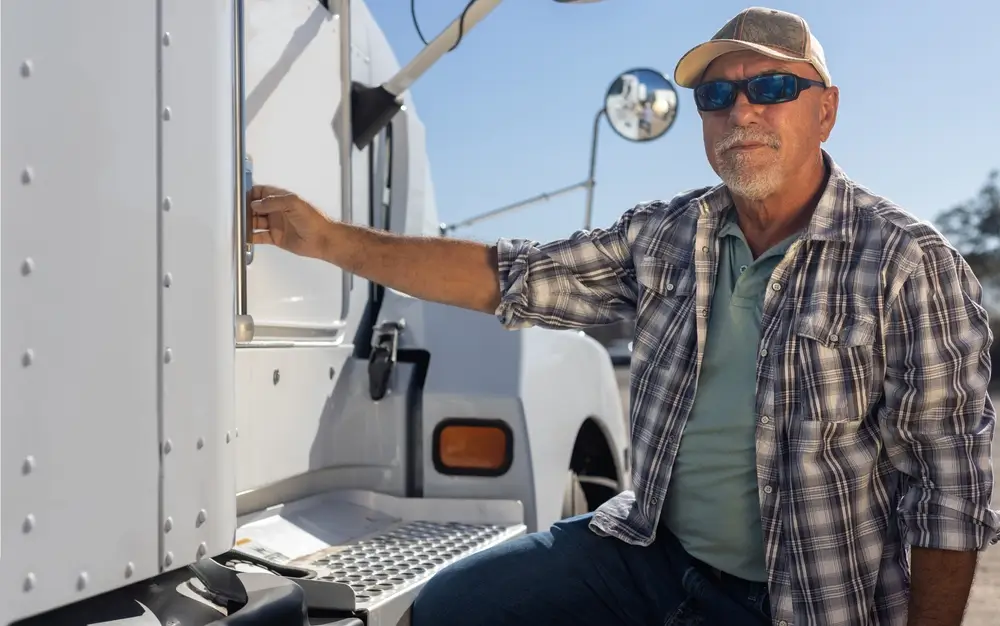
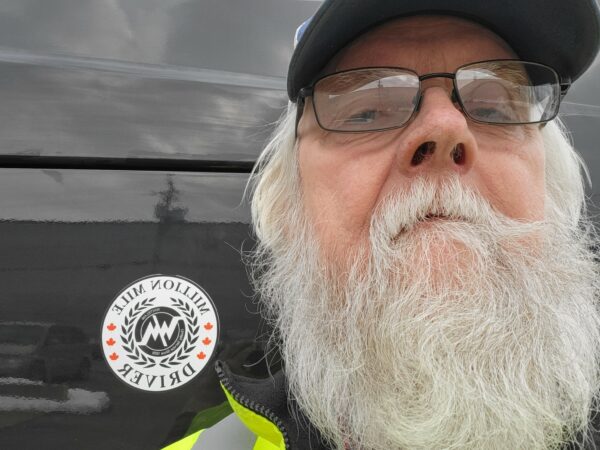

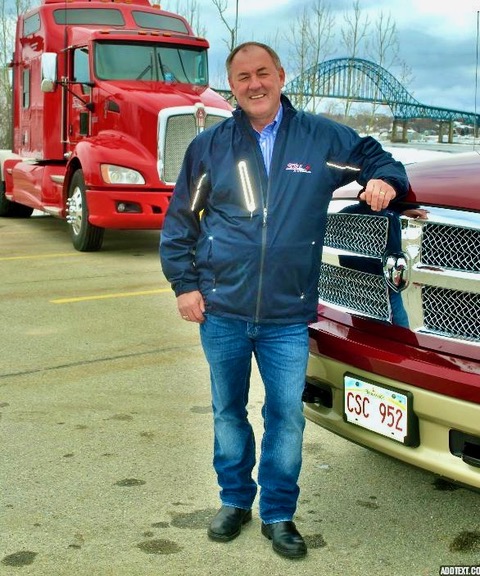
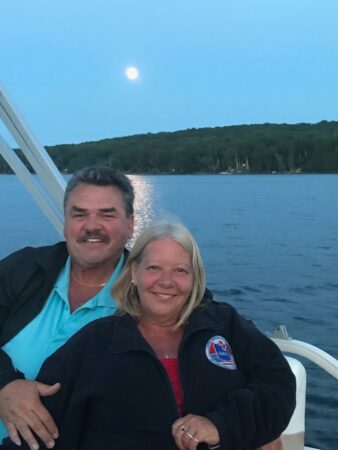
Leave a Reply